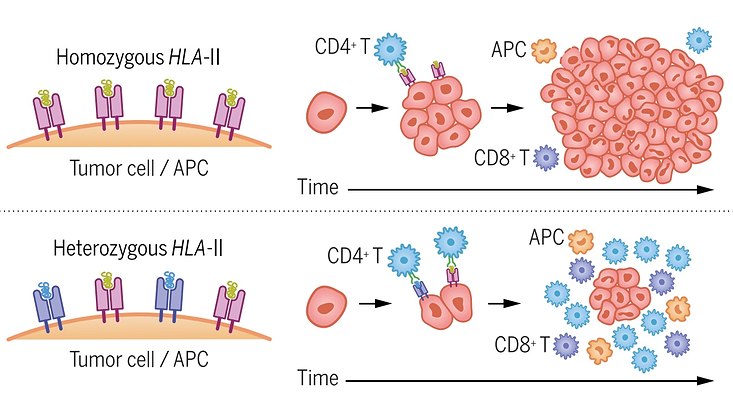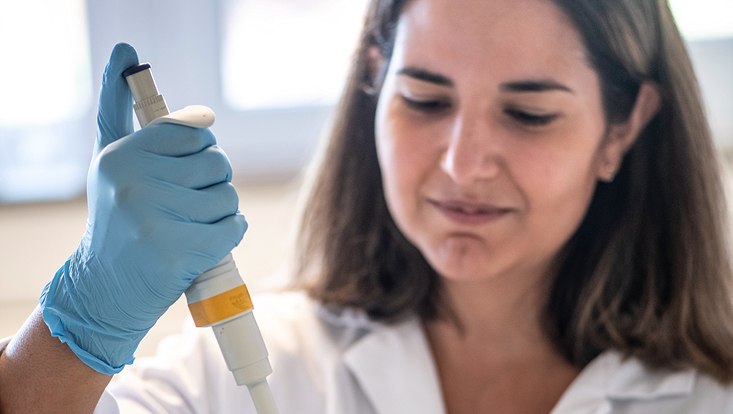An immunogenetic basis for lung cancer risk
23 February 2024

Photo: C. Krishna / Science Magazine
The Research Unit for Evolutionary Immunogenomics in the Department of Biology was involved in a collaborative research study that sheds light on the longstanding debate regarding the role of the immune system in protecting against cancer.
In this study, researchers investigated the influence of genetic variation in the human leukocyte antigen (HLA) locus on lung cancer risk, utilizing data from the UK Biobank and FinnGen along with genomic analyses. Their findings, published in the journal Science, reveal that heterozygosity at the HLA class II (HLA-II) loci is associated with a reduced risk of lung cancer, particularly among current and former smokers. Conversely, HLA-II homozygosity was linked to a substantial lifetime risk of the disease, independent of other known risk factors.
Increased genetic diversity at the HLA loci, e.g. through heterozygosity, has long been assumed to confer elevated immunocompetence, through presentation of a broader repertoire of antigens by diverse HLA molecules. However, this has so far mainly been considered in the context of infectious diseases. This study now provides evidence that HLA heterozygosity confers an advantage in the context of cancer, possibly through the presentation of a broader repertoire of cancer-associated neoantigens.
The research also delved into the molecular mechanisms underlying the association between HLA diversity and lung cancer risk. Analysis of tumor genomes from various cohorts uncovered widespread loss of heterozygosity (LOH) of the HLA-II loci in lung cancer, emphasizing the significance of these genetic variations in cancer development. Moreover, examination of neoantigen repertoires revealed differences between tumors with and without HLA-II LOH, underscoring the crucial role of the HLA-II loci and CD4+ T cell response in lung cancer progression. Overall, these findings deepen our understanding of the interplay between genetic factors, immune surveillance, and environmental exposures in cancer susceptibility, potentially informing future strategies for personalized cancer prevention and treatment, but also providing insights into the mechanisms that selected for high immunogenetic variation during human evolution.
Original publication:
Krishna C, Tervi A, Saffern M, Wilson EA, Yoo S-K, Mars N, Roudko V, Cho BA, Jones SE, Vaninov N, Selvan ME, Gümüş ZH, FinnGen§, Lenz TL, Merad M, Boffetta P, Martínez-Jiménez F, Ollila HM, Samstein RM, Chowell D (2024) An immunogenetic basis for lung cancer risk. Science 383(6685): eadi3808. doi:10.1126/science.adi3808

